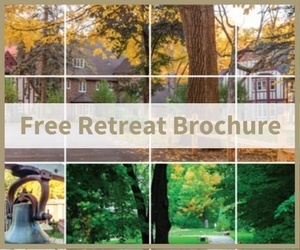Q: How do you define recovery?
A: I consider myself a person in long-term recovery. To me, that means that I haven't had a drink or drug in over 42 years.
Q: Who and what have been especially helpful to you in achieving or maintaining recovery?
A: I work a spiritually-based program, so first of all, God. I had a spiritual experience. I had overdosed. I was dying. I had lost consciousness. My heart rate was slowing, my respiration was slowing, and through the course of this overdose, I saw my life flash before me. Every scene that flashed before me was related to my drinking and drug use. There I was standing in front of the judge lying about my drinking. There I was getting into fights with my father about drinking. There I was getting kicked out of school because of my drinking. And then in this semi-comatose state, this thought, this very simple and profound thought permeated that unconscious state and the thought was this - maybe, just maybe if I stopped drinking and drugging, my life would be less complicated. I believe that thought was a revelation from God.
Q: What personal strengths do you have that support your ongoing recovery?
A: I don’t take no for an answer. I’m rebellious. I am outspoken. Although those characteristics kept me in addiction a long time, when I channeled them toward recovery, they served me very well.
After going through a 30-day treatment program, I came out and started attending recovery meetings regularly. And when I say regularly, I mean that in 365 days, I went to 365 meetings. Not all of those were young people’s meetings. I went to some old timers’ meetings and they didn’t want me in their meetings. Some of them even said, “You’re a drug addict. You can’t be in here”. I would respond that I had a desire to stop drinking, which is the only membership requirement. They were stumped and couldn’t kick me out. It took a lot of intestinal fortitude for me to challenge their authority. I was only 15 years old, but I wanted so desperately what they had, I wasn’t willing to let them kick me out. So, I fought for the right to stay there.
Q: What is one challenging situation that might have put your recovery at risk and how did you respond to that situation?
A: The night of October 28, 1978 my mother received a phone call in the middle of the night that my oldest sister had been killed by a drunk driver. I had just picked-up my three-month chip. I thought, if this is how God wants to repay me for getting sober, he can take this sobriety thing and shove it. I was bitter, I was angry, I was resentful. But in the days that followed her death, dozens of people in the recovery community kept coming up to me and saying things like, “I heard about your sister and I just wanted to let you know that we’re here for you and we support you and we care about you.” It was this incredible outpouring of support and affection that got me through those dark days. It was a turning point in my recovery.
Q: How have you seen your life in recovery change over time?
A: I sobered up in high school and then went on to college. After college, I joined the Army. While in the Army I had the opportunity to attend meetings all over the world from the U.S. to Europe and from Asia to the Middle East. Recovery allowed me to finish my education, enjoy a 27-year career in the military and serve others in recovery through my current work at the Recovery Community Network in Central MN.
Moreover, recovery has given me my family back. Although my parents have passed, I have incredible relationship with my siblings. I’ve been married for twenty-years and I have a daughter, step-daughter, son-in-law and three amazing grandchildren. All of these things came to pass because of my relationship with my Higher Power and recovery.
Q: How do you imagine your time in the military has changed your perspective on recovery?
A: I have a passion for working with veterans in recovery. One of the things I think we could do more of is teaching service-members how they can parlay their military experiences to benefit their recovery. Using the very techniques, tactics, and procedures they learned in the military, but focused on recovery, can be a tremendous aid in building recovery capital.
Q: What’s the most important thing you would say about the value of recovery to someone who’s seeking it?
A: The most important thing is – recovery is a lifestyle that is beyond your wildest dreams.
It’s cliche but I would ask someone seeking recovery, are you sick and tired of being sick and tired? Are you tired of waking up with that knot in your gut every morning? Are you tired of the fear? Are you tired of the loathing? Are you tired of the loneliness?
This was true for me, and I think it’s true for a lot of alcoholics – for a long time, the substance was my only solution. It was keeping me alive. I think if I had gone cold turkey without a recovery program, I probably would have committed suicide.
When the drugs and alcohol no longer work, we hit bottom, and that’s when the “aha” moment or “spiritual awakening”, can take place. We begin to imagine that maybe there is another solution, another way of life that is possible. Everybody’s recovery journey is different, but that’s what happened to me.
Q: What would you say recovery means to you?
A: Again, cliche, but recovery means to me living happy, joyous and free. Living life without chains. Living life without the bondage of addiction. It means living a principled life. To me recovery is a verb – it’s not a noun.
I have been blessed with recovery. I come from a long line of alcoholics. My father was an alcoholic. His father before him was an alcoholic and his father before him was an alcoholic. My family history is shrouded with alcoholism.
But for the first time in generations, perhaps ever, my family doesn’t have to live with active addiction anymore. I have a brother in recovery, a sister in recovery and neither my wife, daughters, nor grandchildren have ever seen my drunk or drugged a day in my life. I believe that there’s probably an alcoholic gene in our family. But with recovery so prevalent in my family, if the disease manifests itself again, we will know what to do.
Maj. John Donovan, U.S.A., Ret., is a person in long-term recovery with over 42 years of sobriety. He has lectured and taught classes in the U.S. and overseas on recovery from substance use disorder since 1986. He has an undergraduate degree from St. Cloud State University and a graduate degree from Boston University. He is a frequent blog contributor for The Retreat and he conducts a monthly workshop for the guests of The Retreat. He is currently the director of the Recovery Community Network in Central MN.
For More Information on The Retreat Programs Please Download our FREE Brochure.






